Strategic insights for managing corporate communications from industry leaders
Strategic communication is a driver for corporate success in today’s rapidly changing world. However, it is hard to find reliable insights into current challenges, upcoming trends, and dimensions of excellence in communication management. Experienced communication leaders know that many debates in industry publications are based on studies with questionable samples or pushed by those selling services and advice.
The European Communication Monitor (ECM) makes a difference. The annual study, established in 2007, is widely recognized as a premier source of information for communication professionals and business leaders. It is organized by a group of professors who are world-renowned researchers in the field. The study reports have been downloaded more than 230,000 times. Peer-reviewed journal articles based on the study have received multiple awards around the world. A book highlighting the pillars of communication excellence derived from the findings is available in several languages including English, Chinese, and Spanish. Similar studies in more than 80 countries have produced the largest empirical evaluation of the field to date.
In 2024, the ECM has entered a new phase. The study design has been refined to focus on corporate communications in the business world. The study will interview an elite sample of communication leaders representing the top companies across Europe. In-depth insights will be based on statements, experiences, and forecasts from those shaping the future of the field. This will replace statistical analyses of surveys of communicators at different hierarchical levels and in diverse types of organizations. The ECM reports will continue to present thought-provoking trends.
The quality and neutrality of the study is guaranteed by a strong team of partners. A research team of six professors from the United Kingdom, Germany, France, Italy, Spain, and the Nordics covers different business cultures and languages of key markets. The non-commercial study is organized within the framework of EUPRERA, the European association of communication researchers. It is supported by four initiatives representing communication directors of major businesses across Europe: the Academic Society for Management & Communication (Germany, Switzerland, Austria), CECOMS (Italy), #NORA (Norway, Finland, Sweden, Denmark), and Entreprises & Médias (France).
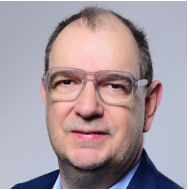 Prof. Dr. Ansgar Zerfass is Professor and Chair of Strategic Communication at Leipzig University, Germany, Editor of the “International Journal of Strategic Communication”, USA, and ECM lead researcher since 2007. He has published 44 books and more than 440 articles and studies. According to Google Scholar, he is is the world’s most cited and influential researcher on corporate communications, communication management, and public relations.
Prof. Dr. Ansgar Zerfass is Professor and Chair of Strategic Communication at Leipzig University, Germany, Editor of the “International Journal of Strategic Communication”, USA, and ECM lead researcher since 2007. He has published 44 books and more than 440 articles and studies. According to Google Scholar, he is is the world’s most cited and influential researcher on corporate communications, communication management, and public relations.
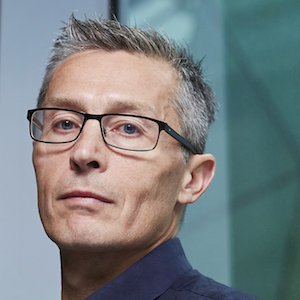 Prof. Dr. Ralph Tench is Director of Research at Leeds Business School in the United Kingdom. His research involves international funded projects from the private sector, the European Union, and research councils. He is author of Europe’s best-selling textbook on strategic communication, “Exploring PR and management communication” (5th ed., Pearson).
Prof. Dr. Ralph Tench is Director of Research at Leeds Business School in the United Kingdom. His research involves international funded projects from the private sector, the European Union, and research councils. He is author of Europe’s best-selling textbook on strategic communication, “Exploring PR and management communication” (5th ed., Pearson).
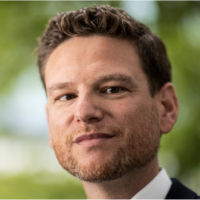 Prof. Dr. Alexander Buhmann is Associate Professor of Corporate Communication at BI Norwegian Business School, Oslo, Norway. His research is situated at the intersection of communication, digital technology, and management with focus on reputation management, digitalization, and artificial intelligence.
Prof. Dr. Alexander Buhmann is Associate Professor of Corporate Communication at BI Norwegian Business School, Oslo, Norway. His research is situated at the intersection of communication, digital technology, and management with focus on reputation management, digitalization, and artificial intelligence.
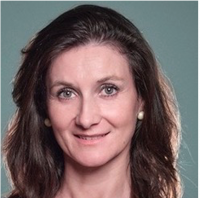 Prof. Dr. Ángeles Moreno is Professor of Public Relations and Communication Management at University Rey Juan Carlos, Madrid, Spain. Her research has been awarded by the most prominent academic associations in Europe, Latin America and North America. She is one of the most influential female social scientists in Spain.
Prof. Dr. Ángeles Moreno is Professor of Public Relations and Communication Management at University Rey Juan Carlos, Madrid, Spain. Her research has been awarded by the most prominent academic associations in Europe, Latin America and North America. She is one of the most influential female social scientists in Spain.
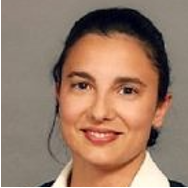 Prof. Dr. Stefania Romenti is Professor of Strategic Communication and Public Relations at IULM University, Milan, Italy, and
Prof. Dr. Stefania Romenti is Professor of Strategic Communication and Public Relations at IULM University, Milan, Italy, and
Past President of the European Public Relations and Education Association (EUPRERA), Brussels. Her research interests focus
on the strategic role of communication within the governance of organizations.
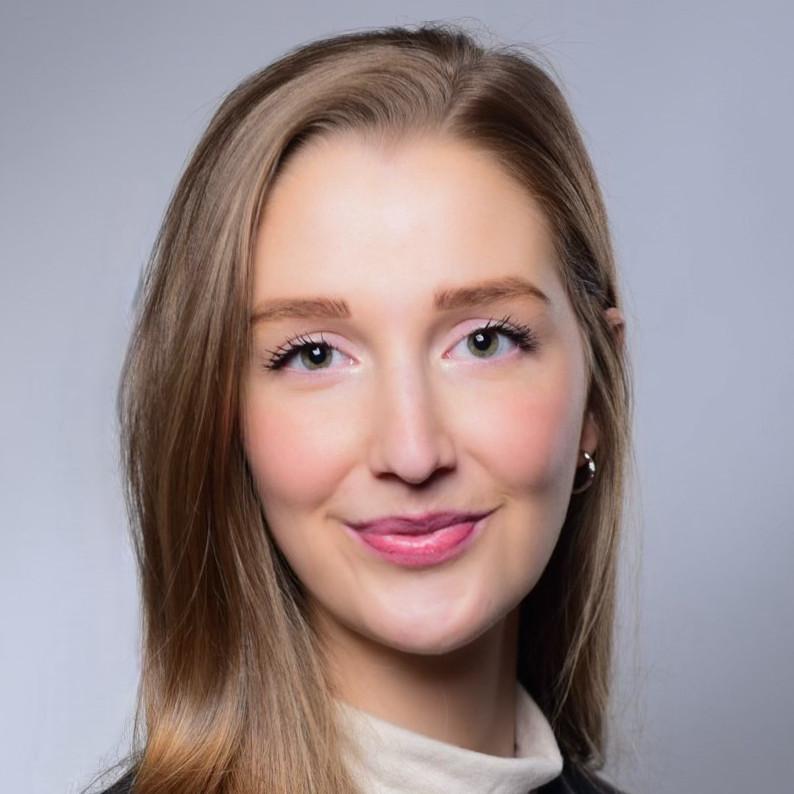 Caroline Siegel, M.A., is project manager for the European Communication Monitor since 2023 and works as a research associate at Leipzig University, Germany, with Prof. Dr. Ansgar Zerfass.
Caroline Siegel, M.A., is project manager for the European Communication Monitor since 2023 and works as a research associate at Leipzig University, Germany, with Prof. Dr. Ansgar Zerfass.
» E-Mail
Partners
Background and history: The ECM and the Global Communication Monitor
The European Communication Monitor has a profound history as a premier source of information for communication professionals. Established in 2007, the ECM provides an overview on the field’s changing status and on emerging or disappearing trends. Between 2007 and 2022, annual surveys among almost 40,000 communication practitioners in 50 countries generated insights to stimulate practice, support theory development, and guide education in universities across the continent.
Additional knowledge has been gained through parallel studies in Latin America, North America and Asia-Pacific: The Global Communication Monitor series is the largest and only truly global study of strategic communication, public relations, corporate communications and communication management practices. Between 2014 and 2022, more than 6,000 communication professionals in over 80 countries were surveyed in three waves of the study. Four connected studies were conducted as collaborative non-profit projects of leading universities, professional associations and foundations in the field:
- European Communication Monitor, annually, since 2007 – Lead researcher: Prof. Dr. Ansgar Zerfass
- Latin American Communication Monitor, biannually, since 2014 – Lead researcher: Prof. Dr. Alejandro A. Nobell & Prof. Dr. Juan Carlos Molledo
- North American Communication Monitor, biannually, since 2018 – Lead researcher: Prof. Dr. Bryan Reber & Assoc. Prof. Dr. Juan Meng
- Asia-Pacific Communication Monitor, biannually, since 2015 – Lead researcher: Prof. Dr. Jim Macnamara
Thanks to all contributors
Conducting the annual ECM surveys was only possible thanks to the enormous commitment of researchers from 28 renowned universities across the continent, professional associations, and partners/sponsors who provided valuable resources. Several academics and professional associations have been part of the ECM network between 2007 and 2023:
Core research team: Alexander Buhmann, Ángeles Moreno, Ralph Tench, Dejan Verčič, Piet Verhoeven, Ansgar Zerfass
National researchers: Eleni Apospori (GR), Christian Burgers (NL), Andrea Catellani (BE), Valérie Carayol (FR), Nino Ćorić (BA), Anne-Marie Cotton (BE), Alexandra Craciun (RO), Sabine Einwiller (AU), Jesper Falkheimer (SE), Finn Frandsen (DK), John Gallagher (IR), Sven Hamrefors (SE), Denisa Hejlová (CZ), Kevin Hora (IR), Øyvind Ihlen (NO), Emanuele Invernizzi (IT), Clio Kenterelidou (GR), Danijela Lalić (RS), Ryszard Lawniczak (PL), Vilma Luoma-aho (FI), Francesco Lurati (CH), Liudmila Minaeva (RU), Ayla Okay (TR), Evandro Oliveira (PO), Milko Petrov (BU), Sandrine Roginsky (BE), Adela Rogojinaru † (RO), Stefania Romenti (IT), Waldemar Rydzak (PL), Sónia Sebãstiao (PO), Marina Shilina (RU), Mariana Sueldo (LT), Betteke van Ruler (NL), Ana Tkalac Verčič (HR)
Assistant researchers: The ECM surveys 2014–2023 have been comprehensively supported by Dr. Markus Wiesenberg, Dr. Jens Hagelstein and Dr. Ronny Fechner as project managers and/or research associates at Leipzig University. Earlier editions were supported by Nadin Ernst, Sandra Häberlein, Anne Ihle, Stephanie Krahl, Prof. Dr. Peter Schmiedgen, Katharina Simon, and Dr. Sophia C. Volk during their time at Leipzig University.
Partners: The ECM surveys 2014–2023 have been co-organized with the European Association of Communication Directors (EACD), and supported by premium sponsor Cision. Former editions were supported by Grayling, Hugin Group, Infopaq, Ketchum Pleon.


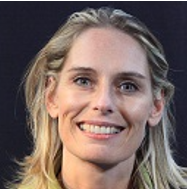 Prof. Dr. Aurélie Laborde is Director of the graduate program in communication of organizations at Bordeaux Montaigne University, France, and Editorial Director of “Communication & Organisation”, the only francophone academic journal focusing on corporate communications.
Prof. Dr. Aurélie Laborde is Director of the graduate program in communication of organizations at Bordeaux Montaigne University, France, and Editorial Director of “Communication & Organisation”, the only francophone academic journal focusing on corporate communications.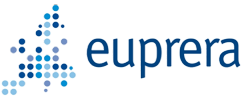 Study organizer: With almost 500 members from 40 countries, mainly universities and other research institutions, the non-profit association represents the academic research community in Europe committed to enhancing and promoting innovation in knowledge, research, education and practice of strategic communication. EUPRERA provides a platform for high-profile transnational research projects and networks and builds bridges between research and practice. The ECM is a signature project whose outreach activities are backed since many years by Fink & Fuchs, an award-winning communication agency based in Wiesbaden, Munich and Berlin as digital supporter.
Study organizer: With almost 500 members from 40 countries, mainly universities and other research institutions, the non-profit association represents the academic research community in Europe committed to enhancing and promoting innovation in knowledge, research, education and practice of strategic communication. EUPRERA provides a platform for high-profile transnational research projects and networks and builds bridges between research and practice. The ECM is a signature project whose outreach activities are backed since many years by Fink & Fuchs, an award-winning communication agency based in Wiesbaden, Munich and Berlin as digital supporter.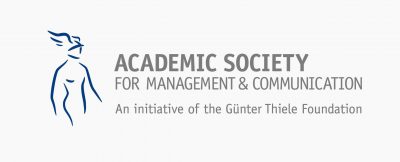 Premium partner: The Academic Society for Management & Communication is Europe‘s leading non-profit think tank for corporate communications, an initiative driven by chief communication officers of 50 global companies and four research universities based in Germany, Switzerland and Austria. It promotes innovation by funding multidisciplinary research projects, provides a platform for thought-leaders, and supports knowledge transfer.
Premium partner: The Academic Society for Management & Communication is Europe‘s leading non-profit think tank for corporate communications, an initiative driven by chief communication officers of 50 global companies and four research universities based in Germany, Switzerland and Austria. It promotes innovation by funding multidisciplinary research projects, provides a platform for thought-leaders, and supports knowledge transfer.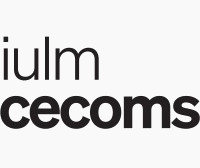 Regional partner: The Center for Strategic Communication (Centro per la Comunicazione Strategica) at Università IULM in Milan is committed to basic and applied research on how strategic communication and PR create value within and for complex organisations. It collaborates with leading communication directors in the region.
Regional partner: The Center for Strategic Communication (Centro per la Comunicazione Strategica) at Università IULM in Milan is committed to basic and applied research on how strategic communication and PR create value within and for complex organisations. It collaborates with leading communication directors in the region.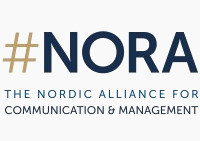 Regional partner: #NORA – The Nordic Alliance for Communication & Management, hosted by BI Norwegian Business School, Oslo. is a cross-disciplinary research group from Norway, Sweden, Denmark and Finland collaborating with communication leaders of top companies in those countries and focusing on communication as a strategic driver of sustainable organizational performance and success in a changing world.
Regional partner: #NORA – The Nordic Alliance for Communication & Management, hosted by BI Norwegian Business School, Oslo. is a cross-disciplinary research group from Norway, Sweden, Denmark and Finland collaborating with communication leaders of top companies in those countries and focusing on communication as a strategic driver of sustainable organizational performance and success in a changing world.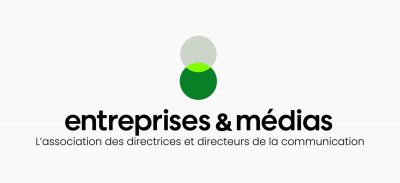 Regional partner: The association of communication directors of large corporates and institutions in France represents more than 180 members. It allows a place for joint reflection, interaction and proposals, focuses on the evolution of communication, the key issues at stake and its practices, drawing on its core belief that communication is a key part in companies’ transformation, economic and societal performance.
Regional partner: The association of communication directors of large corporates and institutions in France represents more than 180 members. It allows a place for joint reflection, interaction and proposals, focuses on the evolution of communication, the key issues at stake and its practices, drawing on its core belief that communication is a key part in companies’ transformation, economic and societal performance.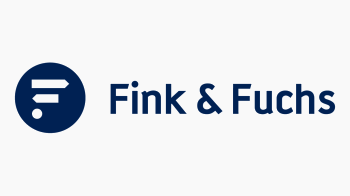 Digital supporter: The ECM is a signature project by EUPRERA whose outreach activities are backed since many years by Fink & Fuchs. As a specialist for the communicaton of change and technological transformation, Fink & Fuchs has been the strategic partner for companies, associations and public clients for 30 years. The agency, based in Wiesbaden, Munich and Berlin, has been awarded three tmes as the agency of the year in Germany.
Digital supporter: The ECM is a signature project by EUPRERA whose outreach activities are backed since many years by Fink & Fuchs. As a specialist for the communicaton of change and technological transformation, Fink & Fuchs has been the strategic partner for companies, associations and public clients for 30 years. The agency, based in Wiesbaden, Munich and Berlin, has been awarded three tmes as the agency of the year in Germany.